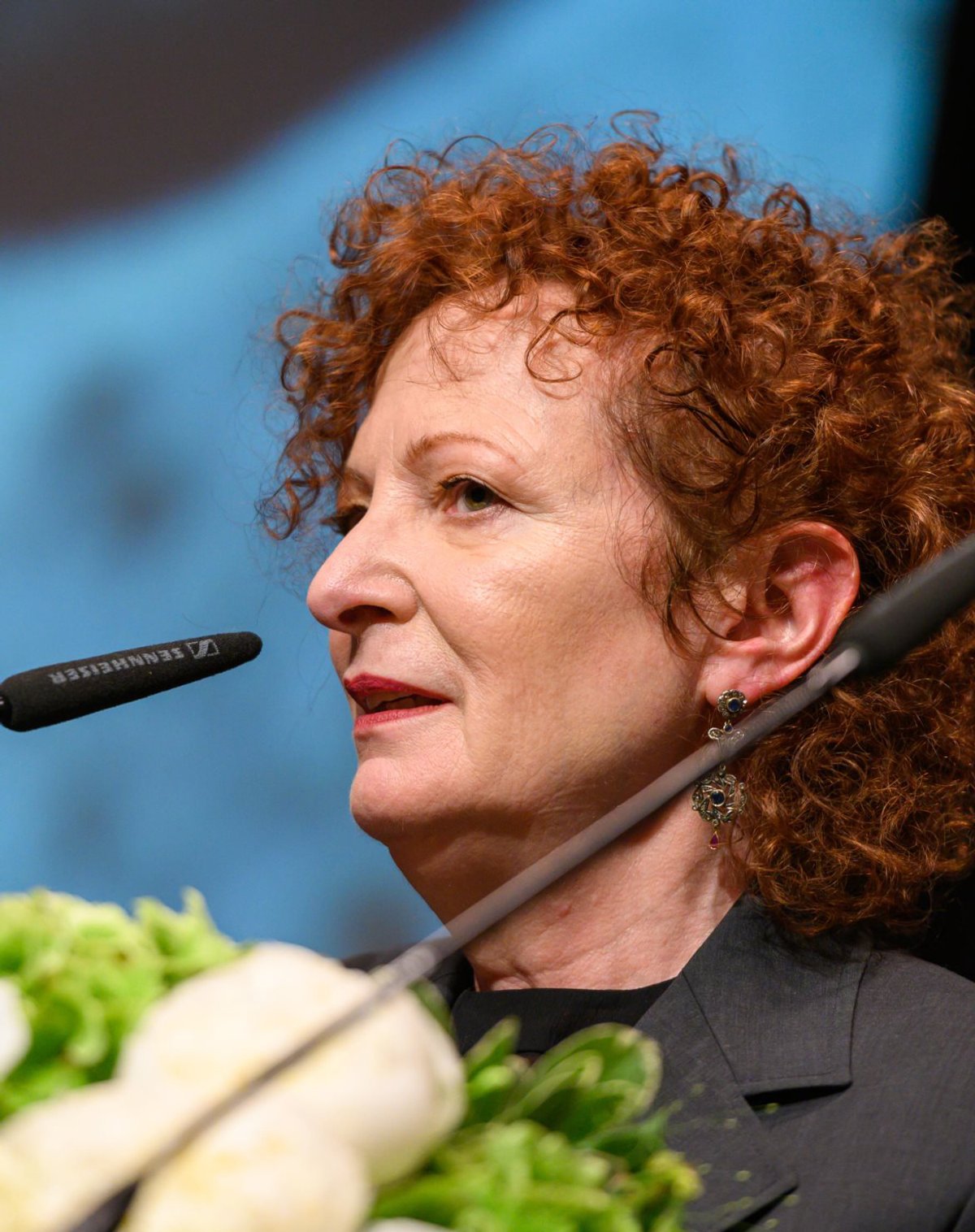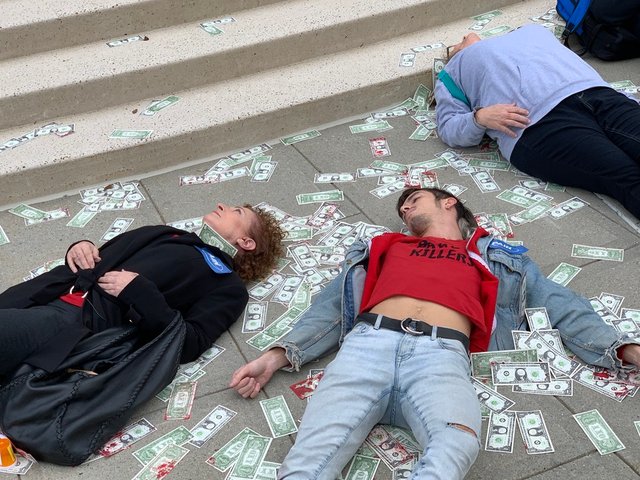Fresh from her arrest in a protest over the US opioid addiction crisis, the artist Nan Goldin today denounced a proposed settlement of more than 2,000 related federal and state lawsuits against the drug maker Purdue Pharma.
Reports this week indicated that the Sackler family, who own Purdue Pharma, would pay out $3bn in personal funds under a proposed settlement that could yield as much as $10bn to $12bn for the plaintiffs overall. The deal also calls for the family to give up control of the company, which would declare bankruptcy and be transformed into a public trust.
“I think it’s completely unacceptable and so deeply cynical,” Goldin said in an interview. “To them, this is really good PR–it looks so benevolent and generous and it makes it look as though they’re paying their dues.”
“I’d rather that the Sackler family faced trial and that their personal wealth was clawed back” far more significantly, the artist says, adding, “They’ve ignited a public health emergency and they need to make restitution and they need to be held responsible.”
Purdue Pharma and members of the Sackler family have been accused in the federal and state lawsuits of aggressively marketing the prescription painkiller OxyContin while minimising the risks, leading to the addiction and deaths of hundreds of thousands of people in the US.
For the past year, Goldin, who was once addicted to opioids, and her protest group PAIN (Prescription Addiction Intervention Now) have been holding "die-ins" and other demonstrations at museums that have accepted major gifts from the Sackler family, urging them to cut those ties. But on 28 August they selected a different target in the opioid crisis: New York Governor Andrew M. Cuomo, whom they fault for failing to establish overdose prevention centers where users could inject the drugs without risking death.
The demonstration outside Cuomo’s Manhattan offices resulted in the arrests of Goldin and 12 other activists who defied police demands that they disperse and stop blocking entrances. All were charged with disorderly conduct.
It was the artist’s first arrest since the PAIN protests began. But Goldin says that she and the other campaigners strategised beforehand and expected to be arrested. “It was OK–we were treated fine,” she says of the six to seven hours the protesters spent in jail while the charges were processed by the New York police.
As for the proposed settlement, Goldin is hoping that the state attorneys general leading many of the lawsuits will continue to push back and demand more.
“People who don’t know think, wow, 10 billion dollars,” she says. “But it doesn’t begin to pay for the damage.”



